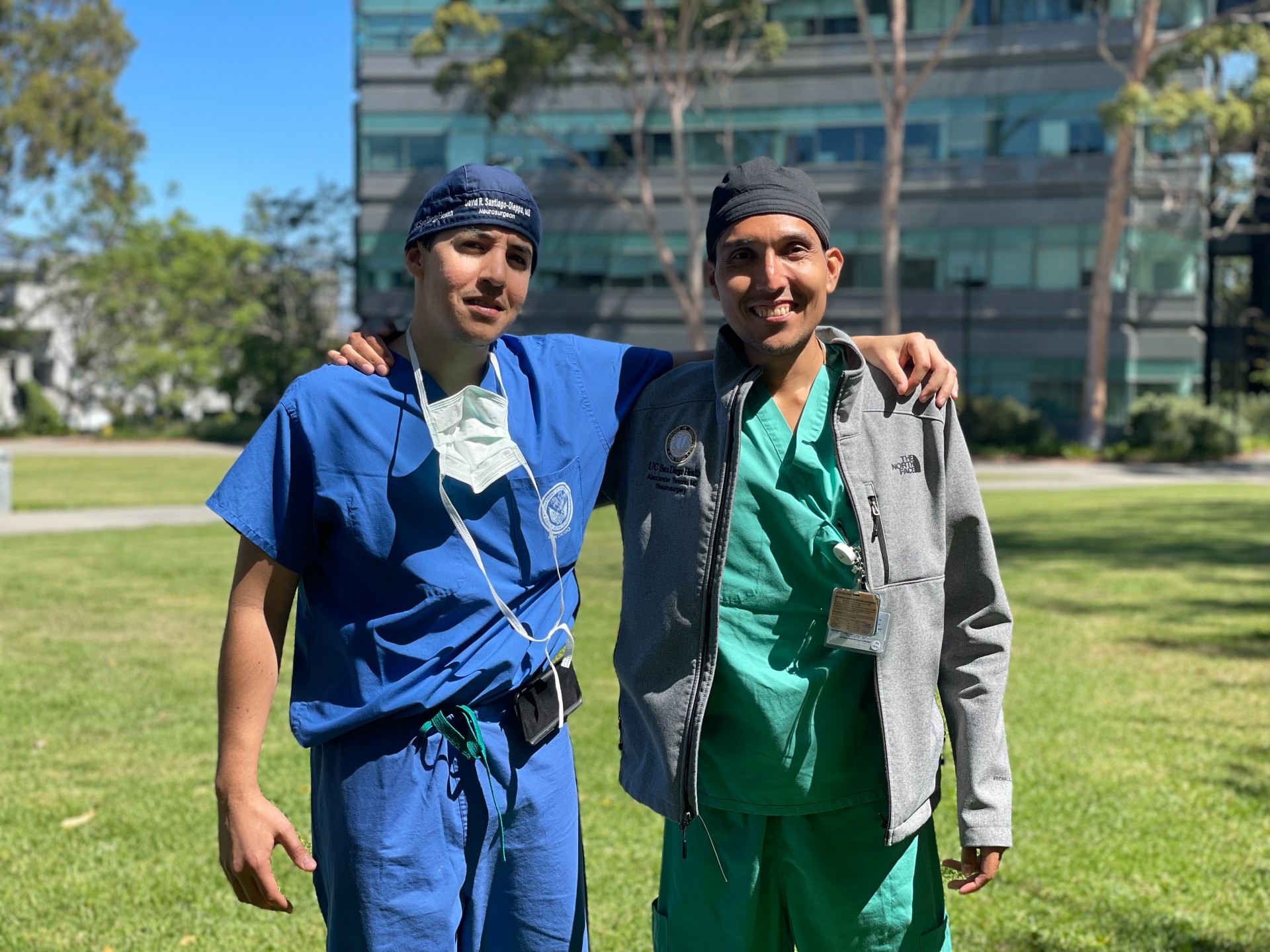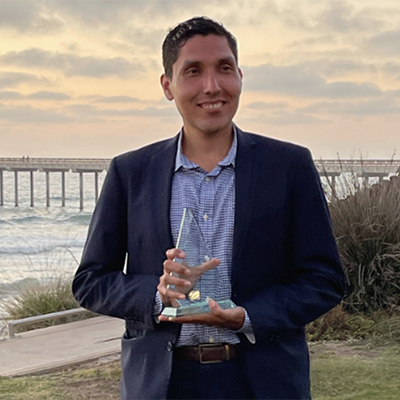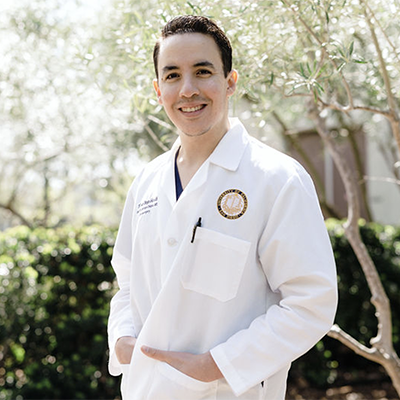
Celebrating Hispanic Neurosurgeons
Meet Drs. David Santiago-Dieppa and Alexander Tenorio (PGY-3)
Each year National Hispanic Heritage Month, held September 15 to October 15, offers an opportunity to celebrate the histories, cultures and contributions of Americans whose ancestors came from Spain, Mexico, the Caribbean and Central and South America. This month is especially meaningful in San Diego, where more than 30% of residents identify as Hispanic and many speak Spanish fluently.
This Hispanic Heritage Month we’re shining the spotlight on two neurosurgeons who identify as Hispanic—faculty member Dr. David Santiago-Dieppa and resident Dr. Alexander Tenorio (PGY-3)—who have developed a strong friendship and mentoring relationship. Read on to learn more about their heritage and what this month means to them.

The recent height increase of the U.S.-Mexico border wall is linked to more frequent, severe and costly spine injuries according to a study Dr. Alexander Tenorio (PGY-3) authored with faculty member Dr. Joseph Ciacci that published in the Journal of Travel Medicine. Dr. Tenorio is pictured at our resident graduation ceremony where this work received our annual award for “Best Resident Research Presentation.”
Alexander Tenorio, MD, PGY-3
Medical school: UC San Francisco
Could you tell us more about your Hispanic heritage?
My parents migrated from Mexico with essentially nothing. My father often says he came with “an extra pair of pants.” I grew up in South Los Angeles in a vibrant but impoverished migrant community. Spanish was always the primary language used and my native language.
Why is it important to celebrate Hispanic Heritage Month?
The Hispanic community is one of the largest in the United States. More than 60 million people who are Hispanic live in U.S. and the majority of immigrants are of Hispanic heritage. However, there are many misconceptions about why people migrate to the United States. This month gives us the opportunity to clarify some of these misconceptions. It’s also a reminder that Hispanic people, who disproportionately live in poverty, need our help—especially physicians who speak Spanish. Finally and importantly, it’s also a time to celebrate. There are many strengths that the Hispanic community brings to our nation. This month brings awareness to all of these important issues.
Why is mentorship, especially with someone who shares your identity, important?
Hispanic culture is all around us, but is very complex and difficult to comprehend unless you were raised in a Hispanic household. Having someone who understands my background and has also gone through the ups and downs of a neurosurgical residency means the world to me. Dr. Santiago-Dieppa understands the circumstances I was raised in and how it may affect me today as I navigate residency.
With all this said, don’t be afraid to be a mentor even if you don’t share someone’s identity. I’ve certainly learned a lot from mentors of all backgrounds.
As we enter Match 2023, what advice would you give to prospective applicants?
Be certain this is what you want to do. I believe neurosurgery is the best job in the world. The hours are long and hard, and the pressure is high. But the feeling of helping people through an incredibly challenging time of their lives provides satisfaction beyond anything else.

David Santiago-Dieppa, MD
Medical school: Johns Hopkins School of Medicine
Residency: UC San Diego School of Medicine
Could you tell us more about your Hispanic heritage?
My family is originally from Ponce, a city in Puerto Rico, and I was born and raised in inner-city Los Angeles.
In addition to Dr. Tenorio, you have provided mentorship and career advance to many residents and medical students. Why are you passionate about mentoring?
Mentoring the next generation of neurosurgeons allows me to change the future of our specialty in a positive way. My approach is to remember how I felt at various stages of my education and training and provide guidance when residents encounter similar hurdles. I try to share what would have helped me at the time.
Why did you choose our program for your residency and then decide to stay on as faculty?
This program is among the best neurosurgical training programs in the world, offering unparalleled clinical training and the opportunity to interface and collaborate with world-class scientists and faculty. That was the reason this program was my number one choice during residency and why I chose to stay on as a faculty member. I also wanted to be part of the team that trains the neurosurgeons who will positively impact our specialty in the future.
